Last May internationally acclaimed golfer Lydia Ko spoke openly about period pain affecting her performance, and the news hit the headlines. Shortly after, Spain gained global recognition as the first European country to be in the process of offering paid sick leave for those who suffer from severe period pain.
At Dignity, we were curious to know what people’s thoughts were around menstrual leave here in Aotearoa, so we launched a survey to find out the opinions of some of our network here in New Zealand.
The response rate to our survey was quite low; we are yet to determine if this is because people don't feel strongly enough about menstrual leave to complete it or because it feels like the whole of New Zealand has had a very rough winter and people simply didn't have time to complete it! We did however still get some interesting insights that we would love to share with you.
The key findings so far included:
10 respondents said that they suffer from period pain. 13 of them said that this affects their ability to work.
11 respondents said that, when calling in sick at work, they don’t feel comfortable mentioning they are on their period.
15 respondents would like menstrual leave to be recognised in the workplace.
Period shame and stigma around periods is still very much a reality. 10 respondents think having access to period products in the workplace makes them more comfortable talking about periods and period pain at work.
(The results are based on 21 responses collected anonymously from 24/5 to 30/6. Therefore, these results should be read as indicative only.)
1. Do you suffer from period pain?
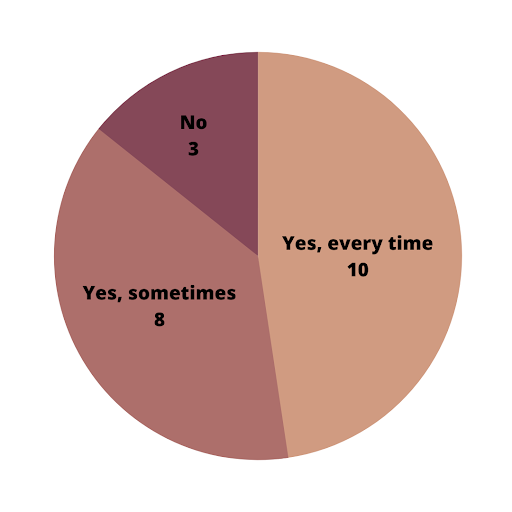
2. Does your period affect your ability to work?
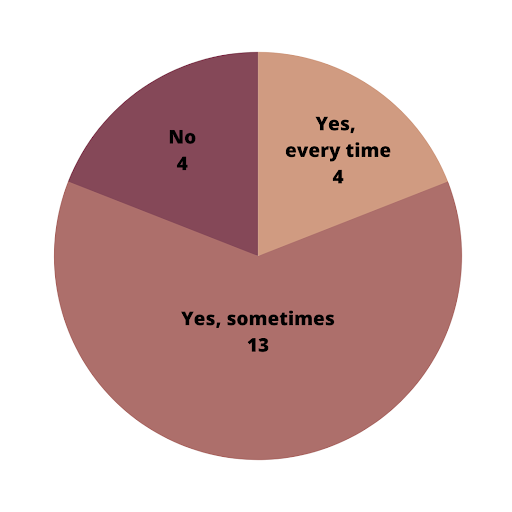
3. If you answered yes, can you tell us more about it?
16 respondents reported anything from mild discomfort, being tired and irritable, to pain so debilitating it would affect their ability to stand up or move. Nausea, fatigue and inability to focus also came up in more than one response. Two respondents disclosed that they suffer from endometriosis, and one reported suffering from a generic medical condition that causes severe period pain.
4. Have you ever called in sick at work because of your period?
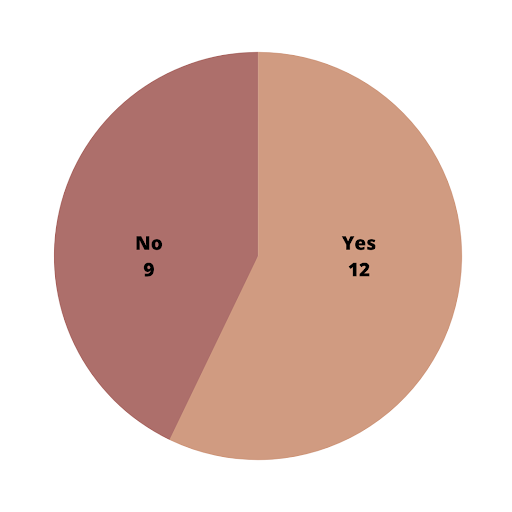
5. If you answered yes, did you mention your period was the reason why you couldn’t go into work?
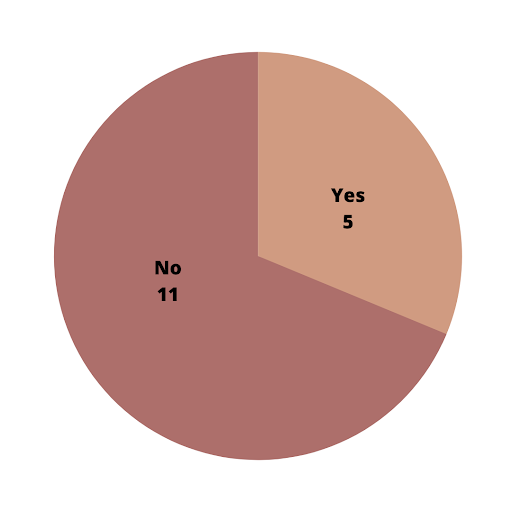
6. If you haven’t called in sick to work due to having your period, why was that?
Out of 12 responses, the most common one was related to shame around having a period, not feeling comfortable telling male bosses and colleagues about being menstruating, and not wanting to disclose having endometriosis in the workplace.
Some respondents also reported how periods are still not an acceptable reason to call in sick, and how period pain is not discussed and understood enough.
7. Do you think menstrual leave should be recognised in workplaces?
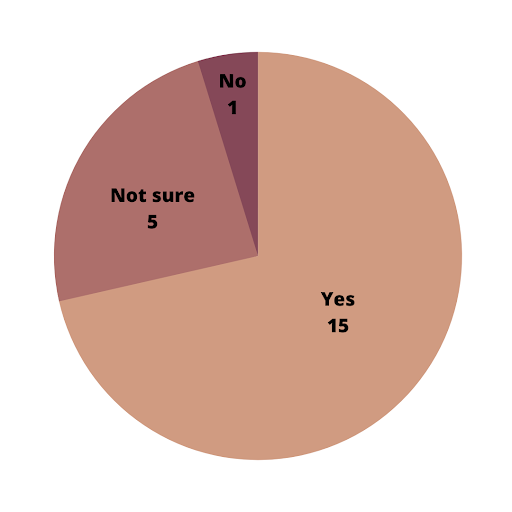
8. Please tell us more about this :)
Out of 15 responses, the majority of respondents believe that menstrual leave should be introduced in the workplace. They reported period pain and how much it affects people’s lives and ability to work still not being understood enough.
2 respondents stressed the importance of ending the shame and embarrassment about periods and being able to talk about menstruation openly in the workplace. They said having menstrual leave would make them feel more supported, less stressed, and like they wouldn’t have to feel bad about having their period.
However, 4 respondents expressed concern about not wanting to disclose being on their period when calling in sick, and how they would prefer to just have more sick leave than separate menstrual leave, or have a more generic wellbeing leave option (more on this at Question 10).
Some people also expressed concern around running out of sick leave, as some people suffer from debilitating pain every time they get their period, not just on a casual basis.
2 participants believe managing sick leave and menstrual leave is an equity issue.
9. Do you think menstrual leave should be separate from regular sick leave?
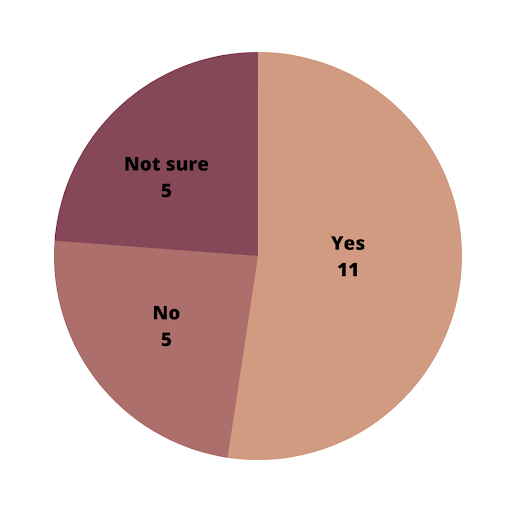
10. Please tell us more about this :)
Out of 13 responses, most people think this is a complicated issue.
If menstrual leave fell under sick leave, the main concern that came up was that people might take advantage of it.
2 respondents stressed how menstruation is not a sickness. For people with endometriosis, having to use sick leave because of period pain might mean they could use up all their sick leave without actually being sick.
Having separate menstrual leave also raised concerns such as bullying or harassment in the workplace for taking period leave, as well as making the gender pay gap even wider, with menstruating employees being perceived as more expensive.
2 respondents said that people with periods have their periods more regularly than people get sick. Also employees can accrue sick leave in a way that someone with periods might not be able to.
Other concerns involved the age menstrual leave would be applied from, as well as how menopausal people and trans women would be factored in. There is also a question around people suffering from other illnesses that might also hinder their ability to work but aren’t recognised under a separate leave.
One respondent said that they don’t mind whether menstrual leave it’s separate from sick leave or not, as long as the issue gets recognised and the shame around periods dropped.
11. Do you have access to period products at your workplace?
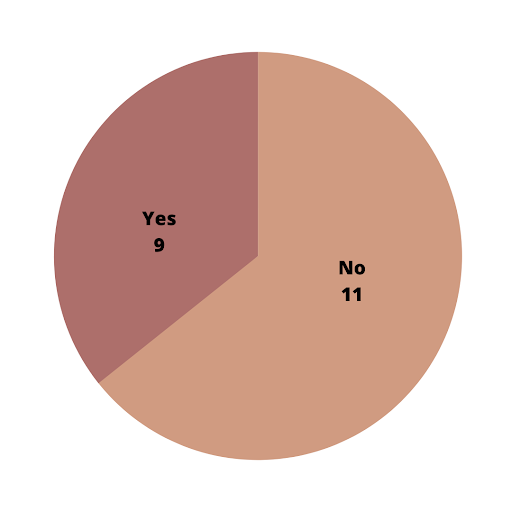
12. If you answered yes, do you feel like this makes you feel more comfortable talking about periods and period pain at work?
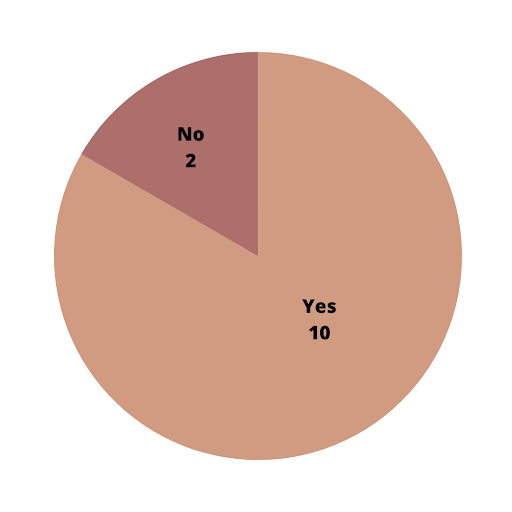
13. Would you like to tell us more?
Out of 8 responses, 5 said that having period products at the workplace would help reduce shame, normalise conversations around periods, and make this reality more visible.
One person stated that having period products provided in the workplaces and schools would bring about true equality. 3 people mentioned the importance of having period products in female-dominated schools and communities too.
Thank you to everyone who took the time to participate in our survey. It was really interesting to read people’s opinions about menstrual leave. If you would like to tell us more about what you think, leave us a comment below or flick us an email at hello@dignitynz.com.
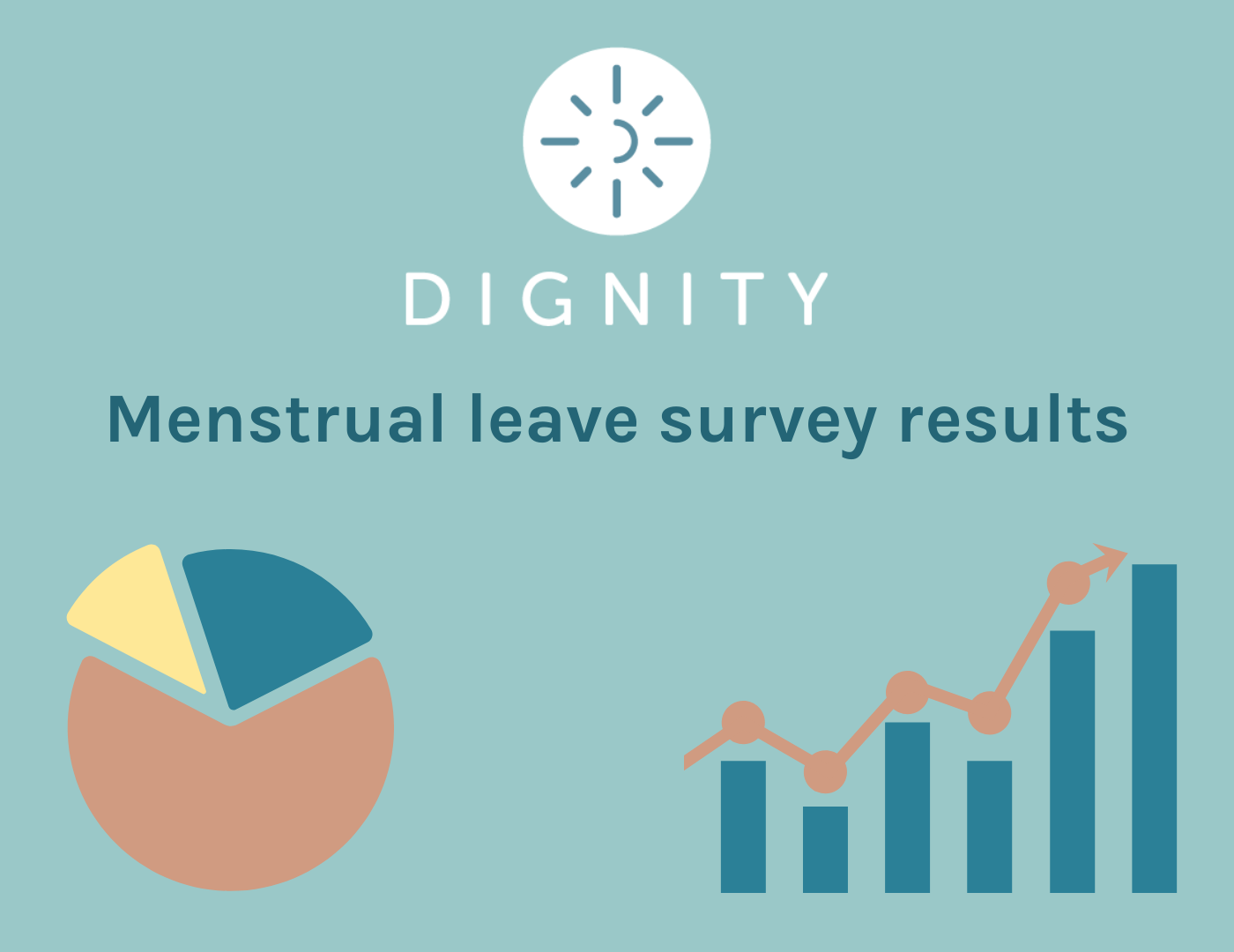
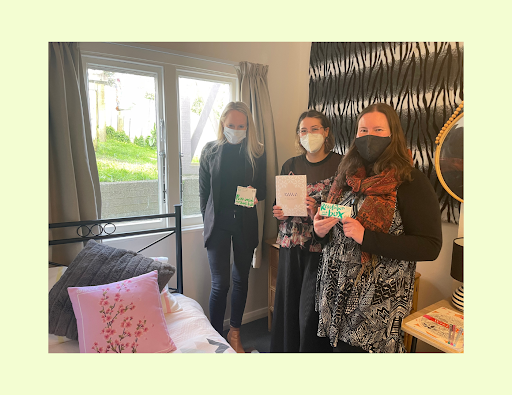

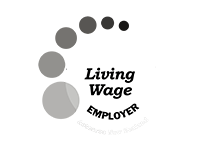



Leave a comment
This site is protected by hCaptcha and the hCaptcha Privacy Policy and Terms of Service apply.